5 sept 2018
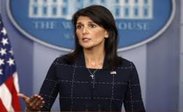
U.S. Ambassador Nikki Haley said, on Tuesday, that she has read the Trump administration’s much-anticipated Middle East peace plan. And while it is “getting close,” it will not be rolled out later this month, during the U.N. General Assembly, as some had predicted.
“I can tell you that Jared Kushner and Jason Greenblatt have done unbelievably detailed work in it,” Haley said of the two presidential advisers tasked with coming up with a plan to resolve one of the world’s most intractable crises. “I have read the plan. It is thoroughly done. It is well-thought-out from both sides — the Palestinians and the Israelis.”
Haley, who is also a member of President Donald Trump’s cabinet, said she couldn’t “say enough good things” about the proposal and warned that “there are a lot of false statements” circulating about it. She added that the proposal would only work if both sides would hear it, and urged the international community to put particular pressure on Palestinian President Mahmoud Abbas to come to the table.
“For the good of the Palestinian people, the region, the international community, we have to put pressure on Abbas and say it’s time. It’s time for a better life for the Palestinians,” Haley said. “And only he can deliver that.”
The Trump administration has seen its relations go from bad to worse with the Palestinian Authority, peaking in December over the White House’s decision to move its embassy from Tel Aviv to Jerusalem.
The Palestinians have also been infuriated with the administration’s decision to cut off funding to the U.N. agency that assists Palestinian refugees and efforts to redefine who is a Palestinian refugee.
On August 31. the United States cut off all funding to UNRWA where State Department explained that US would no longer commit to funding what she called “this irredeemably flawed operation.”
Some observers say the United States is using the cutoff as leverage to force the Palestinians to negotiate a peace deal with Israel.
“I can tell you that Jared Kushner and Jason Greenblatt have done unbelievably detailed work in it,” Haley said of the two presidential advisers tasked with coming up with a plan to resolve one of the world’s most intractable crises. “I have read the plan. It is thoroughly done. It is well-thought-out from both sides — the Palestinians and the Israelis.”
Haley, who is also a member of President Donald Trump’s cabinet, said she couldn’t “say enough good things” about the proposal and warned that “there are a lot of false statements” circulating about it. She added that the proposal would only work if both sides would hear it, and urged the international community to put particular pressure on Palestinian President Mahmoud Abbas to come to the table.
“For the good of the Palestinian people, the region, the international community, we have to put pressure on Abbas and say it’s time. It’s time for a better life for the Palestinians,” Haley said. “And only he can deliver that.”
The Trump administration has seen its relations go from bad to worse with the Palestinian Authority, peaking in December over the White House’s decision to move its embassy from Tel Aviv to Jerusalem.
The Palestinians have also been infuriated with the administration’s decision to cut off funding to the U.N. agency that assists Palestinian refugees and efforts to redefine who is a Palestinian refugee.
On August 31. the United States cut off all funding to UNRWA where State Department explained that US would no longer commit to funding what she called “this irredeemably flawed operation.”
Some observers say the United States is using the cutoff as leverage to force the Palestinians to negotiate a peace deal with Israel.
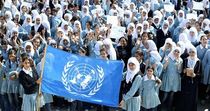
Britain announced on Tuesday that it would increase its aid to UNRWA, the UN agency for “Palestinian refugees.”
“Today I announced an additional £7 million of British aid for UNRWA. This helps ensure Palestinians can continue to access vital healthcare and education,” British minister of state for the Middle East and North Africa Alistair Burt said.
“The international community must follow our lead and step up support to ensure vital services aren’t interrupted,” he added.
Britain’s announcement comes several days after the US administration announced it would no longer fund UNRWA.
Washington’s new decision over UNRWA came several months after it decided to cut some of its funding to the agency as part of its intents to end the Palestinian right of return.
UNRWA recently said it had managed to pay salaries and provide some services, but also said there was still a large budget deficit of $256 million.
On Saturday, the European Union (EU) urged the US to reconsider its "regrettable" decision to cut funding to UNRWA and affirmed it would continue to fund the organization.
"The EU is committed to secure the continuation and sustainability of the agency’s work which is vital for stability and security in the region," a statement emphasized, adding that "many others in the international community, including many Arab states, have pledged their support to the continuity of the work that UNRWA is doing."
The US decision was also criticized by Jordan, whose foreign minister warned the decision would only fuel radicalism and harm prospects for Middle East peace.
“Today I announced an additional £7 million of British aid for UNRWA. This helps ensure Palestinians can continue to access vital healthcare and education,” British minister of state for the Middle East and North Africa Alistair Burt said.
“The international community must follow our lead and step up support to ensure vital services aren’t interrupted,” he added.
Britain’s announcement comes several days after the US administration announced it would no longer fund UNRWA.
Washington’s new decision over UNRWA came several months after it decided to cut some of its funding to the agency as part of its intents to end the Palestinian right of return.
UNRWA recently said it had managed to pay salaries and provide some services, but also said there was still a large budget deficit of $256 million.
On Saturday, the European Union (EU) urged the US to reconsider its "regrettable" decision to cut funding to UNRWA and affirmed it would continue to fund the organization.
"The EU is committed to secure the continuation and sustainability of the agency’s work which is vital for stability and security in the region," a statement emphasized, adding that "many others in the international community, including many Arab states, have pledged their support to the continuity of the work that UNRWA is doing."
The US decision was also criticized by Jordan, whose foreign minister warned the decision would only fuel radicalism and harm prospects for Middle East peace.

Head of the Popular Committee Against the Siege MP Jamal al-Khudari on Tuesday said that food insecurity is threatening one million refugees in Gaza as the US suspended its aid to UNRWA.
Al-Khudari in a statement called for immediate intervention to save the Gaza Strip from unprecedented deterioration in all aspects of life.
He called on the international community to take an action to keep UNRWA's services running without reductions, with the help of the UN General Assembly which mandated UNRWA to operate in Palestine, Jordan, Syria, and Lebanon.
He stressed the need for supporting UNRWA financially given the worsening humanitarian and economic situation in the Gaza Strip as a result of the 12-year-long blockade.
MP al-Khudari also called for launching new projects in Gaza in view of the high unemployment rate which has recently reached 62%.
The Palestinian official concluded by shedding light on the UN resolutions which guarantee the legitimate rights of the Palestinian people, including their right to live in dignity.
Al-Khudari in a statement called for immediate intervention to save the Gaza Strip from unprecedented deterioration in all aspects of life.
He called on the international community to take an action to keep UNRWA's services running without reductions, with the help of the UN General Assembly which mandated UNRWA to operate in Palestine, Jordan, Syria, and Lebanon.
He stressed the need for supporting UNRWA financially given the worsening humanitarian and economic situation in the Gaza Strip as a result of the 12-year-long blockade.
MP al-Khudari also called for launching new projects in Gaza in view of the high unemployment rate which has recently reached 62%.
The Palestinian official concluded by shedding light on the UN resolutions which guarantee the legitimate rights of the Palestinian people, including their right to live in dignity.

Jerusalem, 5 September 2018: The UN Office for the Coordination of Humanitarian Affairs (OCHA): This week, final stocks of emergency fuel will be delivered to critical facilities in the Gaza Strip, through the United Nations-Assisted Emergency Fuel Program.
The Humanitarian Coordinator, Jamie McGoldrick, has written to the donor community requesting immediate support for the program, which provides life-saving emergency fuel to operate standby emergency power generators at critical health centers, and water and sanitation facilities in the Gaza Strip. Funds donated thus far in 2018 have been depleted.
Life-saving services in Gaza currently depend on the UN’s delivery of emergency fuel, due to an energy crisis that leaves the two million Palestinian residents of Gaza, over half of whom are children, with only 4-5 hours of electricity from the grid per day. Based on the current electricity deficit in Gaza, a minimum of $4.5 million is required to sustain these essential services until the end of the year.
“If new funds are not received immediately, we will be facing a potentially catastrophic breakdown in essential service delivery,” said Mr. McGoldrick.
“Services provided at hospitals, clinics, as well as sewage treatment, water and sanitation facilities will cease. Some hospitals are already within a week of closing.
The most vulnerable people of Gaza, who rely on public services and have limited income sources, will be the most negatively affected.”
Hospitals in the Gaza Strip only have enough fuel to support service provision just over two weeks, in total, with some facilities at greater risk: Al Aqsa Hospital in the Middle Area of the Gaza Strip, for example, only has enough emergency fuel to sustain services for just under a week, putting the lives of over 500 vulnerable patients at risk each day.
These include patients being treated in intensive care; new-born babies in neonatal units; patients requiring emergency surgery; dialysis patients treated for kidney failure; and those needing emergency care.
More than 4,800 patients in Gaza daily require access to lifesaving or life-sustaining health care that requires a constant supply of electricity. Of these, at least 300 are connected to life-saving medical machines such as ventilators, dialysis machines, incubators and anesthetic machines, where disruption or electricity cut-out puts patients at immediate risk of brain damage or death.
Without fuel, some 300,000 people will potentially be affected by serious public health concerns as sewage could overflow onto streets. Overall, water and wastewater services are dropping to less than 20 per cent of capacity and water availability is dropping below 50 litres per capita per day, less than half of the minimum requirement according to WHO. Additionally, some essential infrastructure risks significant damage due to lack of fuel to operate key parts, with potential loss of donor investments as a result.
“The situation in Gaza is desperate. Over a decade of blockade and unresolved internal political divisions have stripped people of their rights and left over two-thirds of the population dependent on humanitarian aid,” said Mr. McGoldrick. “We can prevent a further slide into catastrophe by ensuring that essential services continue, but we need the international community to step up immediately with support to do so.”
END
For more information, please contact Mr. Ofir Feuerstein, +972 (0) 54 33 11 836, [email protected]
The Humanitarian Coordinator, Jamie McGoldrick, has written to the donor community requesting immediate support for the program, which provides life-saving emergency fuel to operate standby emergency power generators at critical health centers, and water and sanitation facilities in the Gaza Strip. Funds donated thus far in 2018 have been depleted.
Life-saving services in Gaza currently depend on the UN’s delivery of emergency fuel, due to an energy crisis that leaves the two million Palestinian residents of Gaza, over half of whom are children, with only 4-5 hours of electricity from the grid per day. Based on the current electricity deficit in Gaza, a minimum of $4.5 million is required to sustain these essential services until the end of the year.
“If new funds are not received immediately, we will be facing a potentially catastrophic breakdown in essential service delivery,” said Mr. McGoldrick.
“Services provided at hospitals, clinics, as well as sewage treatment, water and sanitation facilities will cease. Some hospitals are already within a week of closing.
The most vulnerable people of Gaza, who rely on public services and have limited income sources, will be the most negatively affected.”
Hospitals in the Gaza Strip only have enough fuel to support service provision just over two weeks, in total, with some facilities at greater risk: Al Aqsa Hospital in the Middle Area of the Gaza Strip, for example, only has enough emergency fuel to sustain services for just under a week, putting the lives of over 500 vulnerable patients at risk each day.
These include patients being treated in intensive care; new-born babies in neonatal units; patients requiring emergency surgery; dialysis patients treated for kidney failure; and those needing emergency care.
More than 4,800 patients in Gaza daily require access to lifesaving or life-sustaining health care that requires a constant supply of electricity. Of these, at least 300 are connected to life-saving medical machines such as ventilators, dialysis machines, incubators and anesthetic machines, where disruption or electricity cut-out puts patients at immediate risk of brain damage or death.
Without fuel, some 300,000 people will potentially be affected by serious public health concerns as sewage could overflow onto streets. Overall, water and wastewater services are dropping to less than 20 per cent of capacity and water availability is dropping below 50 litres per capita per day, less than half of the minimum requirement according to WHO. Additionally, some essential infrastructure risks significant damage due to lack of fuel to operate key parts, with potential loss of donor investments as a result.
“The situation in Gaza is desperate. Over a decade of blockade and unresolved internal political divisions have stripped people of their rights and left over two-thirds of the population dependent on humanitarian aid,” said Mr. McGoldrick. “We can prevent a further slide into catastrophe by ensuring that essential services continue, but we need the international community to step up immediately with support to do so.”
END
For more information, please contact Mr. Ofir Feuerstein, +972 (0) 54 33 11 836, [email protected]
4 sept 2018
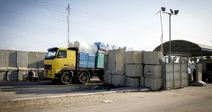
The Palestinian Businessmen Association (PBA) has warned that 90 percent of the economic activities in the besieged Gaza Strip will grind to a halt completely as a result of the financial and humanitarian shocks that have afflicted the population, especially after the US administration stopped funding UNRWA.
Head of the association Ali al-Hayek stated on Monday that thousands of Palestinian citizens in Gaza are threatened with unemployment during the current year as a result of the escalating blockade and the financial crisis that hit UNRWA.
Hayek affirmed that the unemployment rate among the refugees in Gaza would reach 65 percent by the end of 2018 if there was no clear funding program ending UNRWA’s financial crisis.
Head of the association Ali al-Hayek stated on Monday that thousands of Palestinian citizens in Gaza are threatened with unemployment during the current year as a result of the escalating blockade and the financial crisis that hit UNRWA.
Hayek affirmed that the unemployment rate among the refugees in Gaza would reach 65 percent by the end of 2018 if there was no clear funding program ending UNRWA’s financial crisis.

By: Ramzy Baroud
Ramzy Baroud is a journalist, author and editor of Palestine Chronicle. His latest book is The Last Earth: A Palestinian Story.
Israel wants to change the rules of the game entirely. With unconditional support from the Trump Administration, Tel Aviv sees a golden opportunity to redefine what has, for decades, constituted the legal and political foundation for the so-called "Palestinian-Israeli conflict."
While US President Donald Trump's foreign policy has, thus far, been erratic and unpredictable, his administration's "vision" in Israel and Palestine is systematic and unswerving. This consistency seems to be part of a larger vision aimed at liberating the "conflict" from the confines of international law and even the old US-sponsored "peace process."
Indeed, the new strategy has, so far, targeted the status of East Jerusalem as an Occupied Palestinian city, and the Right of Return for Palestinian refugees. It aims to create a new reality in which Israel achieves its strategic goals while the rights of Palestinians are limited to mere humanitarian issues.
Unsurprisingly, Israel and the US are using the division between Palestinian factions, Fatah and Hamas, to their advantage. Fatah dominates the Palestinian Authority (PA) in Ramallah while Hamas controls besieged Gaza.
A carrot and a stick scenario is being applied in earnest. While, for years, Fatah received numerous financial and political perks from Washington, Hamas subsisted in isolation under a permanent siege and protracted state of war. It seems that the Trump Administration - under the auspices of Trump's senior adviser and son-in-law, Jared Kushner - are turning the tables.
The reason that the PA is no longer the "moderate" Palestinian leadership it used to be in Washington's ever self-serving agenda is that Mahmoud Abbas has decided to boycott Washington in response to the latter’s recognition of all of Jerusalem as Israel's capital. True, Abbas' subservience has been successfully tested in the past but, under the new administration, the US demands complete "respect", thus total obedience.
Hamas, which is locked in Gaza between sealed borders from every direction, has been engaging Israel indirectly through Egyptian and Qatari mediation. That engagement has, so far, resulted in a short-term truce, while a long-term truce is still being discussed.
The latest development on that front was the visit by Kushner, accompanied with Middle East envoy, Jason Greenblatt, to Qatar on August 22. There, Gaza was the main topic on the agenda.
So, why is Gaza, which has been isolated (even by the PA itself) suddenly the new gate through which top US, Israeli and regional officials are using to reactivate Middle East diplomacy?
Ironically, Gaza is being particularly suffocated these days. The entire Gaza Strip is sinking deeper in its burgeoning humanitarian crisis, with August being one of the most grueling months.
A series of US financial aid cuts has targeted the very socio-economic infrastructure that allowed Gaza to carry on, despite extreme poverty and the ongoing economic blockade.
On August 31, Foreign Policy magazine reported that the US administration is in the process of denying the UN Palestinian refugees agency, UNRWA - which has already suffered massive US cuts since January - of all funds. Now the organization's future is in serious peril.
The worrying news came only one week after another announcement, in which the US decided to cut nearly all aid allocated to Palestinians this year – $200 million, mostly funds spent on development projects in the West Bank and humanitarian aid to Gaza.
So why would the US manufacture a major humanitarian crisis in Gaza - which suits the right-wing government of Benjamin Netanyahu well - while, simultaneously, engaging in discussions regarding the urgent need to end Gaza’s humanitarian woes?
The answer lies in the need for the US to manipulate aid to Palestinians in order to exact political concessions for Israel’s sake.
Months before rounds of Egyptian-sponsored indirect talks began between Israel and Hamas, there has been an unmistakable shift in Israeli and U.S. attitudes regarding the future of Gaza:
On January 31, Israel presented to a high-level conference in Brussels "humanitarian assistance plans" for Gaza at a proposed cost of $1 billion. The plan focuses mostly on water distillation, electricity, gas infrastructure and upgrading the joint industrial zone at the Erez crossing between Gaza and Israel. In essence, the Israeli plan is now the core discussion pertaining to the proposed long-term ceasefire.
The meeting was attended by Greenblatt, along with Kushner who is entrusted with implementing Trump's unclear vision, inappropriately termed the "Deal of the Century."
Two months later, Kushner hosted top officials from 19 countries to discuss the humanitarian crisis in Gaza.
Clearly, there is a common thread between all of these activities.
Since the US decided to defy international law and move its embassy from Tel Aviv to Jerusalem last December, it has been in search of a new strategy that will circumvent the PA in Ramallah.
PA President, Abbas, whose political apparatus is largely reliant on "security coordination" with Israel, US political validation and financial handouts, has little with which to bargain.
Hamas has relatively greater political capital – as it has operated with less dependency on the Israeli-US-western camp. But years of relentless siege, interrupted by massive deadly Israeli wars, have propelled Gaza into a permanent humanitarian crisis.
While a temporary truce between Israel and Hamas-led Palestinian groups in Gaza went into effect on August 15, a long-term truce is still being negotiated. According to the Israeli daily "Haaretz," citing Israeli officials, the truce would include a comprehensive ceasefire, opening all border crossings, expansion of the permitted fishing area off the Gaza coast, and the overhauling of Gaza’s destroyed economic infrastructure - among other stipulations.
Concurrently, Palestinian officials in Ramallah are fuming. "Chief negotiator," Saeb Erekat, accused Hamas of trying to "destroy the Palestinian national project," by negotiating a separate agreement with Israel. The irony is that the Fatah-dominated Palestine Liberation Organization (PLO) and PA have done just that for over 25 years.
However, delinking the future of Gaza from the future of all Palestinians can, indeed, lead to dangerous consequences.
Regardless of whether a permanent truce is achieved between Israel and the Hamas-led Gaza factions, the sad truth is that, whatever grand illusion is harbored by Washington and Tel Aviv at the moment, is almost entirely based on exploiting Palestinian divisions, for which the Palestinian leadership is to be wholly blamed.
Ramzy Baroud is a journalist, author and editor of Palestine Chronicle. His latest book is The Last Earth: A Palestinian Story.
Israel wants to change the rules of the game entirely. With unconditional support from the Trump Administration, Tel Aviv sees a golden opportunity to redefine what has, for decades, constituted the legal and political foundation for the so-called "Palestinian-Israeli conflict."
While US President Donald Trump's foreign policy has, thus far, been erratic and unpredictable, his administration's "vision" in Israel and Palestine is systematic and unswerving. This consistency seems to be part of a larger vision aimed at liberating the "conflict" from the confines of international law and even the old US-sponsored "peace process."
Indeed, the new strategy has, so far, targeted the status of East Jerusalem as an Occupied Palestinian city, and the Right of Return for Palestinian refugees. It aims to create a new reality in which Israel achieves its strategic goals while the rights of Palestinians are limited to mere humanitarian issues.
Unsurprisingly, Israel and the US are using the division between Palestinian factions, Fatah and Hamas, to their advantage. Fatah dominates the Palestinian Authority (PA) in Ramallah while Hamas controls besieged Gaza.
A carrot and a stick scenario is being applied in earnest. While, for years, Fatah received numerous financial and political perks from Washington, Hamas subsisted in isolation under a permanent siege and protracted state of war. It seems that the Trump Administration - under the auspices of Trump's senior adviser and son-in-law, Jared Kushner - are turning the tables.
The reason that the PA is no longer the "moderate" Palestinian leadership it used to be in Washington's ever self-serving agenda is that Mahmoud Abbas has decided to boycott Washington in response to the latter’s recognition of all of Jerusalem as Israel's capital. True, Abbas' subservience has been successfully tested in the past but, under the new administration, the US demands complete "respect", thus total obedience.
Hamas, which is locked in Gaza between sealed borders from every direction, has been engaging Israel indirectly through Egyptian and Qatari mediation. That engagement has, so far, resulted in a short-term truce, while a long-term truce is still being discussed.
The latest development on that front was the visit by Kushner, accompanied with Middle East envoy, Jason Greenblatt, to Qatar on August 22. There, Gaza was the main topic on the agenda.
So, why is Gaza, which has been isolated (even by the PA itself) suddenly the new gate through which top US, Israeli and regional officials are using to reactivate Middle East diplomacy?
Ironically, Gaza is being particularly suffocated these days. The entire Gaza Strip is sinking deeper in its burgeoning humanitarian crisis, with August being one of the most grueling months.
A series of US financial aid cuts has targeted the very socio-economic infrastructure that allowed Gaza to carry on, despite extreme poverty and the ongoing economic blockade.
On August 31, Foreign Policy magazine reported that the US administration is in the process of denying the UN Palestinian refugees agency, UNRWA - which has already suffered massive US cuts since January - of all funds. Now the organization's future is in serious peril.
The worrying news came only one week after another announcement, in which the US decided to cut nearly all aid allocated to Palestinians this year – $200 million, mostly funds spent on development projects in the West Bank and humanitarian aid to Gaza.
So why would the US manufacture a major humanitarian crisis in Gaza - which suits the right-wing government of Benjamin Netanyahu well - while, simultaneously, engaging in discussions regarding the urgent need to end Gaza’s humanitarian woes?
The answer lies in the need for the US to manipulate aid to Palestinians in order to exact political concessions for Israel’s sake.
Months before rounds of Egyptian-sponsored indirect talks began between Israel and Hamas, there has been an unmistakable shift in Israeli and U.S. attitudes regarding the future of Gaza:
On January 31, Israel presented to a high-level conference in Brussels "humanitarian assistance plans" for Gaza at a proposed cost of $1 billion. The plan focuses mostly on water distillation, electricity, gas infrastructure and upgrading the joint industrial zone at the Erez crossing between Gaza and Israel. In essence, the Israeli plan is now the core discussion pertaining to the proposed long-term ceasefire.
The meeting was attended by Greenblatt, along with Kushner who is entrusted with implementing Trump's unclear vision, inappropriately termed the "Deal of the Century."
Two months later, Kushner hosted top officials from 19 countries to discuss the humanitarian crisis in Gaza.
Clearly, there is a common thread between all of these activities.
Since the US decided to defy international law and move its embassy from Tel Aviv to Jerusalem last December, it has been in search of a new strategy that will circumvent the PA in Ramallah.
PA President, Abbas, whose political apparatus is largely reliant on "security coordination" with Israel, US political validation and financial handouts, has little with which to bargain.
Hamas has relatively greater political capital – as it has operated with less dependency on the Israeli-US-western camp. But years of relentless siege, interrupted by massive deadly Israeli wars, have propelled Gaza into a permanent humanitarian crisis.
While a temporary truce between Israel and Hamas-led Palestinian groups in Gaza went into effect on August 15, a long-term truce is still being negotiated. According to the Israeli daily "Haaretz," citing Israeli officials, the truce would include a comprehensive ceasefire, opening all border crossings, expansion of the permitted fishing area off the Gaza coast, and the overhauling of Gaza’s destroyed economic infrastructure - among other stipulations.
Concurrently, Palestinian officials in Ramallah are fuming. "Chief negotiator," Saeb Erekat, accused Hamas of trying to "destroy the Palestinian national project," by negotiating a separate agreement with Israel. The irony is that the Fatah-dominated Palestine Liberation Organization (PLO) and PA have done just that for over 25 years.
However, delinking the future of Gaza from the future of all Palestinians can, indeed, lead to dangerous consequences.
Regardless of whether a permanent truce is achieved between Israel and the Hamas-led Gaza factions, the sad truth is that, whatever grand illusion is harbored by Washington and Tel Aviv at the moment, is almost entirely based on exploiting Palestinian divisions, for which the Palestinian leadership is to be wholly blamed.
3 sept 2018
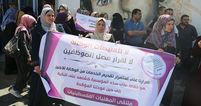
Spain strongly condemned in a press release issued Monday the US decision to end financing the United Nations Relief and Works Agency for Palestine Refugees in the Near East (UNRWA).
The Spanish Foreign Ministry asked Washington to reconsider the decision, taking into account that it had slashed its aid from $365 million in 2017 to $60 million at the start of 2018.
The "critical financial situation of the UNRWA caused by the decision taken by the (US President Donald) Trump administration seriously threatens the continuity of special programs in health, education and food, which directly benefit Palestinian refugees in the Middle East," it said.
"The suppression of basic services to 3 million Palestinian refugees could have serious consequences for the stability of the region, especially in the Gaza Strip."
The ministry said Madrid is "fully committed" to "finding joint solutions,” which will allow UNRWA to continue its work in a sustainable manner.
"Spain considers that the EU and its member states should make a supplementary effort to compensate the possible consequences of the serious decision taken by the U.S," the statement concluded.
For its part, the Government of the Bolivarian Republic of Venezuela expressed on Monday its deepest concern over the US decision.
“Such despicable measure may be the most biased and extreme ever taken by the United States since 1948 regarding the Israeli-Palestinian conflict,” said a statement issued by the government of Venezuela. “Far from contributing to the region’s stability, the US is jeopardizing millions of people by collectively punishing them, availing itself of its economic power.”
It said: “They show once again their contempt for the multilateral system and their commitment to unilateralism, which only guides us towards arbitrariness and the law of the strongest.”
Venezuela expressed its strong support for and solidarity with the Palestinian People and particularly to those in refugee situation.
The statement also said that Venezuela acknowledges the work of all UNRWA officials who, despite all difficulties, have tried to continue protecting the human rights of Palestinian refugees.
“We reject the smear campaign against the organization and we reiterate our conviction that lasting peace is achieved through a dialogue based on respect and justice and not through coercion,” the statement concluded.
The Spanish Foreign Ministry asked Washington to reconsider the decision, taking into account that it had slashed its aid from $365 million in 2017 to $60 million at the start of 2018.
The "critical financial situation of the UNRWA caused by the decision taken by the (US President Donald) Trump administration seriously threatens the continuity of special programs in health, education and food, which directly benefit Palestinian refugees in the Middle East," it said.
"The suppression of basic services to 3 million Palestinian refugees could have serious consequences for the stability of the region, especially in the Gaza Strip."
The ministry said Madrid is "fully committed" to "finding joint solutions,” which will allow UNRWA to continue its work in a sustainable manner.
"Spain considers that the EU and its member states should make a supplementary effort to compensate the possible consequences of the serious decision taken by the U.S," the statement concluded.
For its part, the Government of the Bolivarian Republic of Venezuela expressed on Monday its deepest concern over the US decision.
“Such despicable measure may be the most biased and extreme ever taken by the United States since 1948 regarding the Israeli-Palestinian conflict,” said a statement issued by the government of Venezuela. “Far from contributing to the region’s stability, the US is jeopardizing millions of people by collectively punishing them, availing itself of its economic power.”
It said: “They show once again their contempt for the multilateral system and their commitment to unilateralism, which only guides us towards arbitrariness and the law of the strongest.”
Venezuela expressed its strong support for and solidarity with the Palestinian People and particularly to those in refugee situation.
The statement also said that Venezuela acknowledges the work of all UNRWA officials who, despite all difficulties, have tried to continue protecting the human rights of Palestinian refugees.
“We reject the smear campaign against the organization and we reiterate our conviction that lasting peace is achieved through a dialogue based on respect and justice and not through coercion,” the statement concluded.
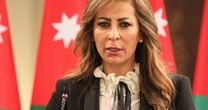
Jordan on Sunday rejected a proposal initiated by US administration officials to establish a Palestinian-Jordanian confederation.
Jordanian government spokeswoman Jumana Ghneimat said that joining the kingdom with the West Bank, the area Palestinians want for a future state within the 1967 borders, is not a matter that is open for discussion.
During a meeting with an Israeli delegation that visited Ramallah on Sunday, Palestinian Authority president Mahmoud Abbas said that senior US administration officials Jared Kushner and Jason Greenblatt asked him recently about his opinion of a "confederation with Jordan".
"I said yes to the offer, but I want a three-way confederation with Jordan and Israel," Abbas said.
Jordanian government spokeswoman Jumana Ghneimat said that joining the kingdom with the West Bank, the area Palestinians want for a future state within the 1967 borders, is not a matter that is open for discussion.
During a meeting with an Israeli delegation that visited Ramallah on Sunday, Palestinian Authority president Mahmoud Abbas said that senior US administration officials Jared Kushner and Jason Greenblatt asked him recently about his opinion of a "confederation with Jordan".
"I said yes to the offer, but I want a three-way confederation with Jordan and Israel," Abbas said.
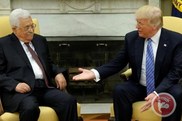
Palestinian President Mahmoud Abbas agreed to a peace plan on Sunday offered by the United States administration on provision that Israel would also be part of the confederation with Jordan.
Abbas said in a statement during a meeting held on Sunday with the left-wing Peace Now movement and Israeli Knesset members, that the United States Trump administration proposed a peace plan that was based on a confederation with Jordan.
However, Abbas told the US administration he would only agree to the proposal on the provision that Israel would also be part of the confederation.
The meeting was attended by the Peace Now Chairwoman, Shaked Morag, and MK’s Mossi Raz of the Meretz party and Ksenia Svetlova for the Zionist Union party.
Abbas informed the attendees that the US peace envoy, Jason Greenblatt, and Trump's senior advisor, Jared Kushner, asked if he believes in a federation with Jordan.
He added that he agreed to the proposal "I want a triangular confederation with Jordan and Israel. I asked if Israel would agree to that proposal."
He stressed that following the US decision to end all funding to the United Nations Relief and Works Agency for Palestine Refugees (UNRWA), the US "is closing the peace process. The US wants to destroy UNRWA completely," noting that 70% of Gaza’s residents are refugees.
"Most of them live on UNRWA’s assistance. Then President Trump says 'cancel UNRWA and give humanitarian aid to Gaza.' How is it possible to abolish UNRWA on the one hand and Palestinians be given humanitarian aid on the other," he asked.
Abbas continued "I have met with Trump four times. Trump said that he supports the two-state solution and that he’s in favor of a demilitarized state with NATO forces maintaining a secure environment in the area."
He confirmed his support for Israel’s security and for finding a solution to the Palestinian refugee problem.
Abbas mentioned that the Israeli Prime Minister Benjamin Netanyahu refuses to meet with him face to face, "My problem is with Netanyahu, not with the Likud. Netanyahu is against Trump’s proposal."
Morag concluded the meeting by assuring Abbas that "The Israeli peace camp is widespread and during the next general election Peace Now will demand from the leaders a commitment to advancing the two-state solution."
Abbas said in a statement during a meeting held on Sunday with the left-wing Peace Now movement and Israeli Knesset members, that the United States Trump administration proposed a peace plan that was based on a confederation with Jordan.
However, Abbas told the US administration he would only agree to the proposal on the provision that Israel would also be part of the confederation.
The meeting was attended by the Peace Now Chairwoman, Shaked Morag, and MK’s Mossi Raz of the Meretz party and Ksenia Svetlova for the Zionist Union party.
Abbas informed the attendees that the US peace envoy, Jason Greenblatt, and Trump's senior advisor, Jared Kushner, asked if he believes in a federation with Jordan.
He added that he agreed to the proposal "I want a triangular confederation with Jordan and Israel. I asked if Israel would agree to that proposal."
He stressed that following the US decision to end all funding to the United Nations Relief and Works Agency for Palestine Refugees (UNRWA), the US "is closing the peace process. The US wants to destroy UNRWA completely," noting that 70% of Gaza’s residents are refugees.
"Most of them live on UNRWA’s assistance. Then President Trump says 'cancel UNRWA and give humanitarian aid to Gaza.' How is it possible to abolish UNRWA on the one hand and Palestinians be given humanitarian aid on the other," he asked.
Abbas continued "I have met with Trump four times. Trump said that he supports the two-state solution and that he’s in favor of a demilitarized state with NATO forces maintaining a secure environment in the area."
He confirmed his support for Israel’s security and for finding a solution to the Palestinian refugee problem.
Abbas mentioned that the Israeli Prime Minister Benjamin Netanyahu refuses to meet with him face to face, "My problem is with Netanyahu, not with the Likud. Netanyahu is against Trump’s proposal."
Morag concluded the meeting by assuring Abbas that "The Israeli peace camp is widespread and during the next general election Peace Now will demand from the leaders a commitment to advancing the two-state solution."
Page : 22 - 21 - 20 - 19 - 18 - 17 - 16 - 15 - 14 - 13 - 12 - 11 - 10 - 9 - 8 - 7 - 6 - 5 - 4 - 3 - 2 - 1
